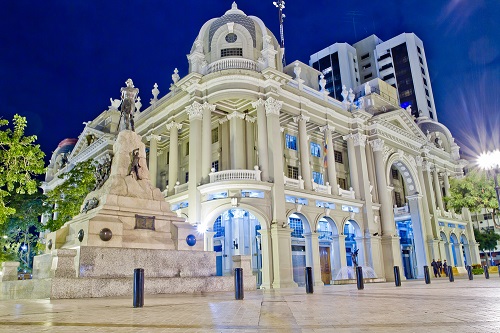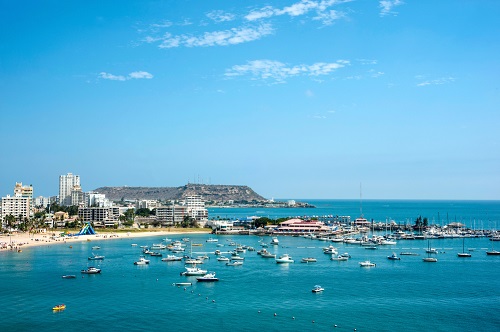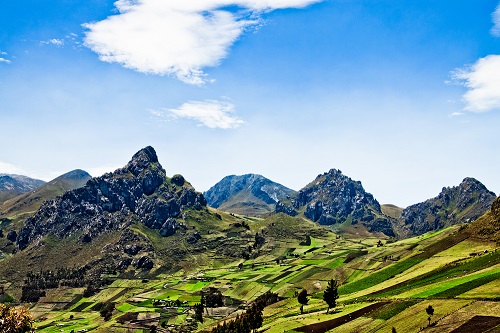Renting property
If you know where abouts in Ecuador you would like to live, you can walk around the local area looking for signs with ‘Se Alquila or ’Se Arrienda’ written on them – these both mean ‘To Rent.’ These signs will likely include telephone numbers, which you can call to make enquiries. Most person-to-person business in Ecuador is conducted in Spanish, so if your grasp of the language is not strong, you may want to find a local translator. You can also search for properties in local newspapers.There are various websites available that may be able to help you find your ideal home. For example:
• Gringo Post
• Gringo Tree
• Puntosur Propiedades
Typical lease terms
You will probably need to put down a deposit on any property you decide to rent. You may also be asked for a month’s rent in advance, which may count towards your first or your last month’s payment.
Most properties will come unfurnished, which not only means that they contain no furniture, but also that they have no kitchen appliances – not even a fridge or an oven. You will therefore need to factor this into your budget.
Typical rental prices in major expat destinations
Quito, the capital, has a wide range of rental options, depending on which neighbourhood you would like to live in. A two-bedroom apartment in Carcelen may cost around $300 per month. A four-bedroom apartment in the more upmarket Gonzalo Suarez might cost closer to $1,200 per month. Cuenca, in the south of the country, is much cheaper, and a family home there can be rented for around $300 per month.
Specific advice for expats
Never send money to reserve an unseen property. The property will probably remain unseen, and you may not see your money again.
Written leases are not unknown, but are not standard either. Try to get your lease in writing, and translate it if you don’t speak fluent Spanish. Contracts in Ecuador are not binding unless they are witnessed by a notary (escribano), and you may want to hire your own solicitor to check it for you. This will cost extra, but you may be glad of it in the long run.
Before signing anything or moving in, check the property for problems, such as existing cracks and breakages, and make sure these are noted in writing. Also, establish exactly who is going to deal with them.
Central heating is rare, but given the average Ecuadorian altitude – 1,000 metres – heating is needed. Many properties are heated by propane. The landlord may provide the water heater equipment, but you must hire the cylinders.

Buying property
Legal restrictions on foreign ownership
Ecuador has no outright restrictions on foreign ownership of property, but permission may be needed within 50 km of the country’s borders or coastline (your solicitor should be able to advise you on this). Permission is usually granted when applied for, but it is not automatic.
If you purchase property for $25,000 or more in Ecuador, you are automatically given a residency visa, once you have completed the necessary paperwork.
Typical house buying procedure
The process of buying a home in Ecuador is streamlined, and it usually takes less than a month from start to finish.
Once you have found the property you want, survey it to make sure you are satisfied. Local construction standards may not match your western expectations. Verify the person selling is entitled to do so, by asking to see their Cedula(ID card).
When hiring a solicitor (abogado), try to find one by personal recommendation or with verifiable references. They need to conduct a title search to get copies of:
• Certificado De Gravamenes (lien certificate) and/or Certificado Simple (simple certificate), showing no one else has any claim on the property in the form of liens, encumbrances and so on
• Certificado De Registro De Propiedad Actualizado (property registration certificate), showing the property legally exists
• Certificado Del Historial De La Propiedad (property history certificate), listing all transactions dealing with the property
• La Línea de Fábrica, showing zoning and potential restrictions on land use, and confirming that legal boundaries of the property match the actual boundaries
Unless you are prepared to make an on-the-spot purchase (which is not unknown, but is not advised), your solicitor will draw up a Promesa de Compraventa (promise of sale). This is a binding promise to buy that outlines the conditions of the sale, including purchase price, default penalties and completion date. This must be signed by you and the seller in the presence of a notary. If you can’t be in the country for whatever reason, then you can give power of attorney to a friend or your solicitor to sign in your stead.
Note that all documents are in Spanish. If you are not fluent in the language, then by law a qualified translator must also be present to represent you. The notaries may have a brief conversation with you to satisfy themselves that you are sufficiently fluent to proceed without a translator.
At this stage, you may need to make a down payment, which will probably be 10% of the purchase price. Do not make any payment until you have the signed and notarised bit of paper.
Your solicitor then prepares the purchase document, the Compraventa (sale). Two copies of this are signed by both parties and notarised. At this stage, you pay the agreed purchase price, or the outstanding balance. Payment for the property is usually made by bank transfer, while the individuals involved in the process – solicitor, notary, translator – may prefer a personal cheque or cash.
Your solicitor then registers your property at the land registry, which conducts its own searches on the property, similar to the ones you would have made at the start of your search. They then retain one copy of your Compraventa for their records and return the other, now stamped, to you. This is now your Minuta, your final deed to the property.
You must pay the necessary taxes as a buyer at this stage – this is generally 2% to 2.5% of the purchase price, depending on the province. There is also a registration tax of 1% of the value shown in the deed for recording the transfer of any real property, plus a $350 flat fee. There is no VAT on property transfers.
Sellers and buyers are required to pay their own debts outside of the sales process, such as for insurance, real estate commissions, etc.
Sellers are liable to capital gains tax for any gain they make, up to a maximum of 25% of the net gain in municipal value.

Finding properties to buy
The best place to search for property is locally. The market is highly localised; there are nationwide estate agents, but an estate agent in Quito is still unlikely to know about properties in Cuenca. If you are not already resident in the area you want to buy in, hire a local agent. They will have their ear to the ground and a vested interest in having happy customers.
Related to the lack of a nationwide market, there is no central repository for sales data, and therefore no way of comparing historical and present prices. To get a feel for what constitutes a fair price, you will have to do your own research.
If you are living locally, then one method is to approach owners of desirable properties on spec. Many properties are not formally listed, but their owners may still be interested in selling.
The sources mentioned in the rental section above – newspapers and websites – also list properties for sale.
Specific advice for expats
There are two forms of purchase:
• Derechos y acciones (rights and shares, i.e. rights in a property granted to heirs of an owner who dies with no will)
• cuerpo cierto(literally, ‘true body’, i.e. an outright sale)
Make sure that your purchase is cuerpo cierto. If your purchase is derechos y acciones, then you must make sure, before the sale goes through, that all heirs are accounted for and paid off, making your purchase cuerpo cierto. Otherwise heirs – real and alleged – may start to emerge from the woodwork and claim a right to your property.
Mortgages for foreign nationals
Ecuador has a limited market for mortgages, and it is relatively difficult for expats to obtain one. You will need to have been resident in Ecuador for at least two years. Expats therefore often make full cash purchases, or agree to a cash instalment plan over six to 12 months. This can be stipulated in the Promesa de Compraventa, which is binding. Interest rates are high, so being able to pay cash gives you significant bargaining power.
Where banks can be persuaded to provide a loan, they still prefer this to be short-term rather than long-term, in order to limit their exposure. Buyers are free to take out a mortgage in another country, as long as the money reaches the seller in accordance with the terms of the Promesa de Compraventa.

